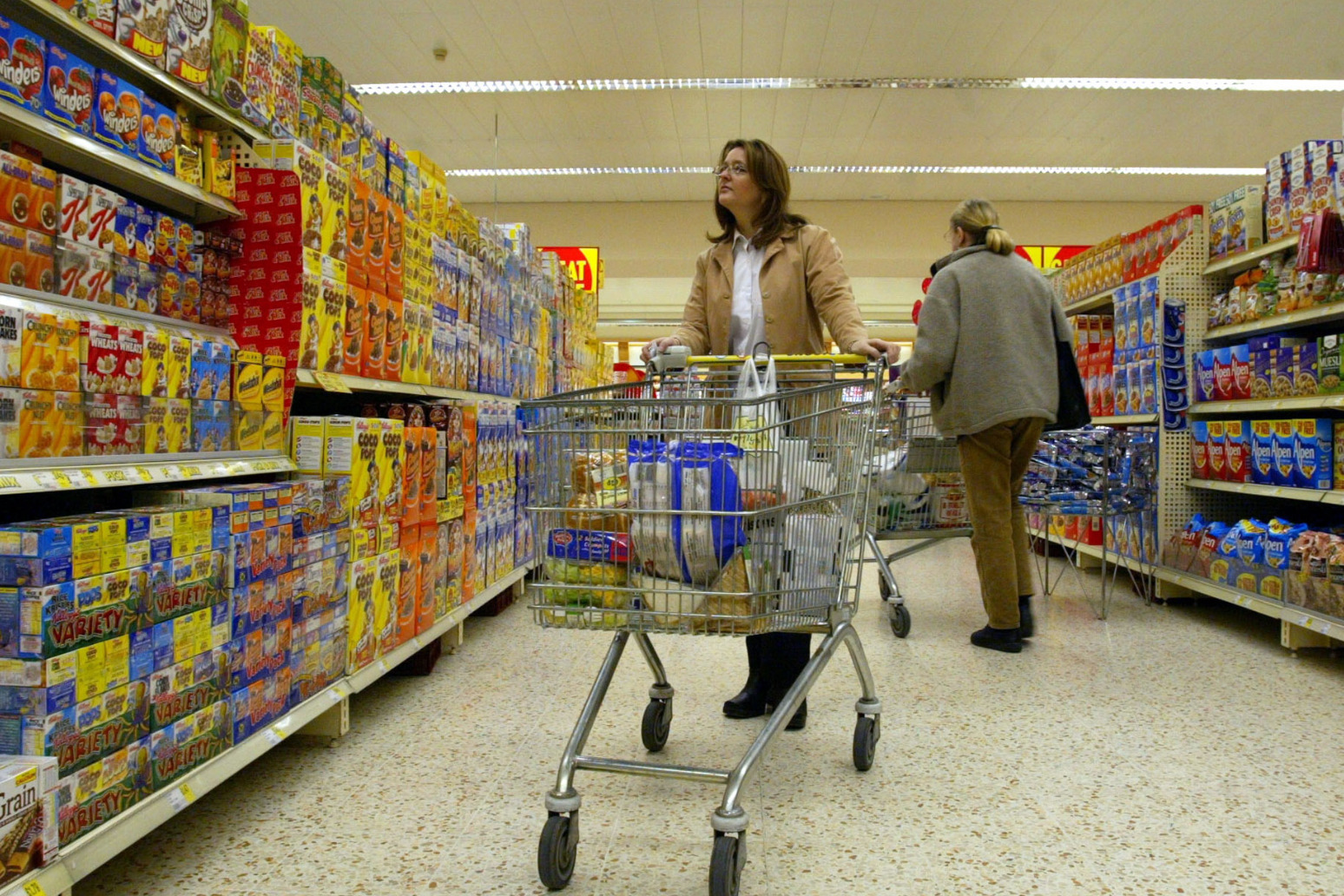
Surge in food prices drives retail inflation to decade high
The latest BRC-NielsenIQ Shop Price Index revealed retail price inflation of 2.8% in May, the highest figure since July 2011
Shop prices grew at the fastest rate in more than a decade in May on the back of rapidly accelerating food inflation, according to new figures.
Industry experts added that the situation for consumers would get “worse before it gets better” as prices keep rising alongside other household bills.
The latest BRC-NielsenIQ Shop Price Index revealed retail price inflation of 2.8% in May, the highest figure since July 2011.
It said this accelerated from a 2.7% rise in April as rapidly rising food prices offset discounting and promotions in clothing and homeware.
“Retail prices edged up further as commodity, energy and transport costs continued to climb,” said Helen Dickinson, chief executive of the British Retail Consortium.
“It is likely to get worse before it gets better for consumers with prices continuing to rise and a further jump in energy costs coming in October.”
Food inflation leap to 4.3% in May from 3.5% in April, reaching the highest since April 2012.
Fresh food prices grew by 4.5% while ambient food, such as store-cupboard staples, rose by 4% for the month.
Ms Dickinson added: “Fresh food inflation hit its highest rate in a decade, with items like poultry and margarine seeing some of the largest increases due to soaring costs of animal feed and near-record global food prices.
“Retailers have been working hard to protect their customers from these rising costs, particularly at a time when households are being impacted by a huge rise in household energy bills.”
Mike Watson, head of retailer and business insight at NielsenIQ, said: “The acceleration in food inflation reflects the fact that retailers can no longer absorb the full extent of increased supply chain costs now hitting the industry.
“Promotions remain close to an all-time low and price cuts rather than volume-based offers such as multibuy are now the best way for retailers to help their shoppers manage their household budgets.”
It came days after the Office for National Statistics (ONS) revealed that budget pasta prices rose 50% between April last year and April this year, with the cost of bread and minced beef also lifting substantially higher.
Meanwhile, the new data showed that non-food prices saw a slowdown in inflation to 2% in May from 2.2% in April.
Published: by Radio NewsHub